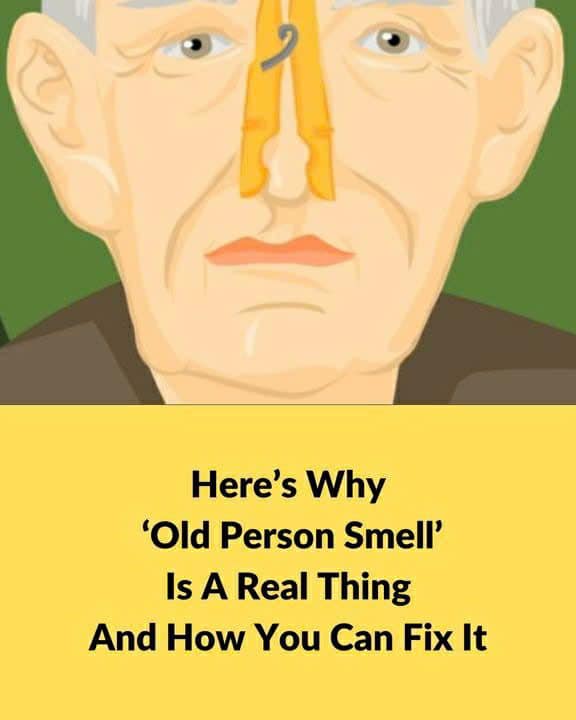While we love and respect our elders, we do also realize that there are certain things that come with age besides wisdom. Physical changes in older people are not just their outer appearance.
There’s a distinct body odor that is a product of aging, commonly called “old people smell”. Though that’s not a flattering term, science has proven that it does exist. You’ve smelled it. It’s sort of musty with undertones of oil or grease, and it seems to come out of the pores.
You can find it in a relative’s house, nursing homes, or in the line at the grocery store, but understand it has little to do with hygiene. According to scientists, the odor is caused by a compound called 2-nonenal. When hormones change as we age, our bodies produce more fatty acids in the skin.
Our antioxidant levels decrease as we get older, so those fatty acids are exposed to oxidation with in turn produces high amounts of nonenal. It can remain on the skin even after washing, and largely exudes from the chest and back area.
There are a few things that can heighten the intensity of the smell: dirty laundry, confined spaces, and dehydration.
Illness and medications may also contribute to the odor. A study published in 2001 in the Journal of Investigative Dermatology found that elderly subjects had a higher concentration of nonenal clinging to their clothing.
Aaacording to a more recent study from 2012, humans’ ability to discern the scent of old people from others may be linked to a subconscious connection to ancestors. Like animals, they could determine the age and health status of someone by odor.
The Japanese have a name for the smell – kareishu – and many companies in the country have come up with products to combat it. Perfumes, body washes, and other deodorizers exist that purport to help neutralize the odor. One ingredient, persimmon, is said to eliminate it completely from the skin.
read more on next page\
ADVERTISEMENT

